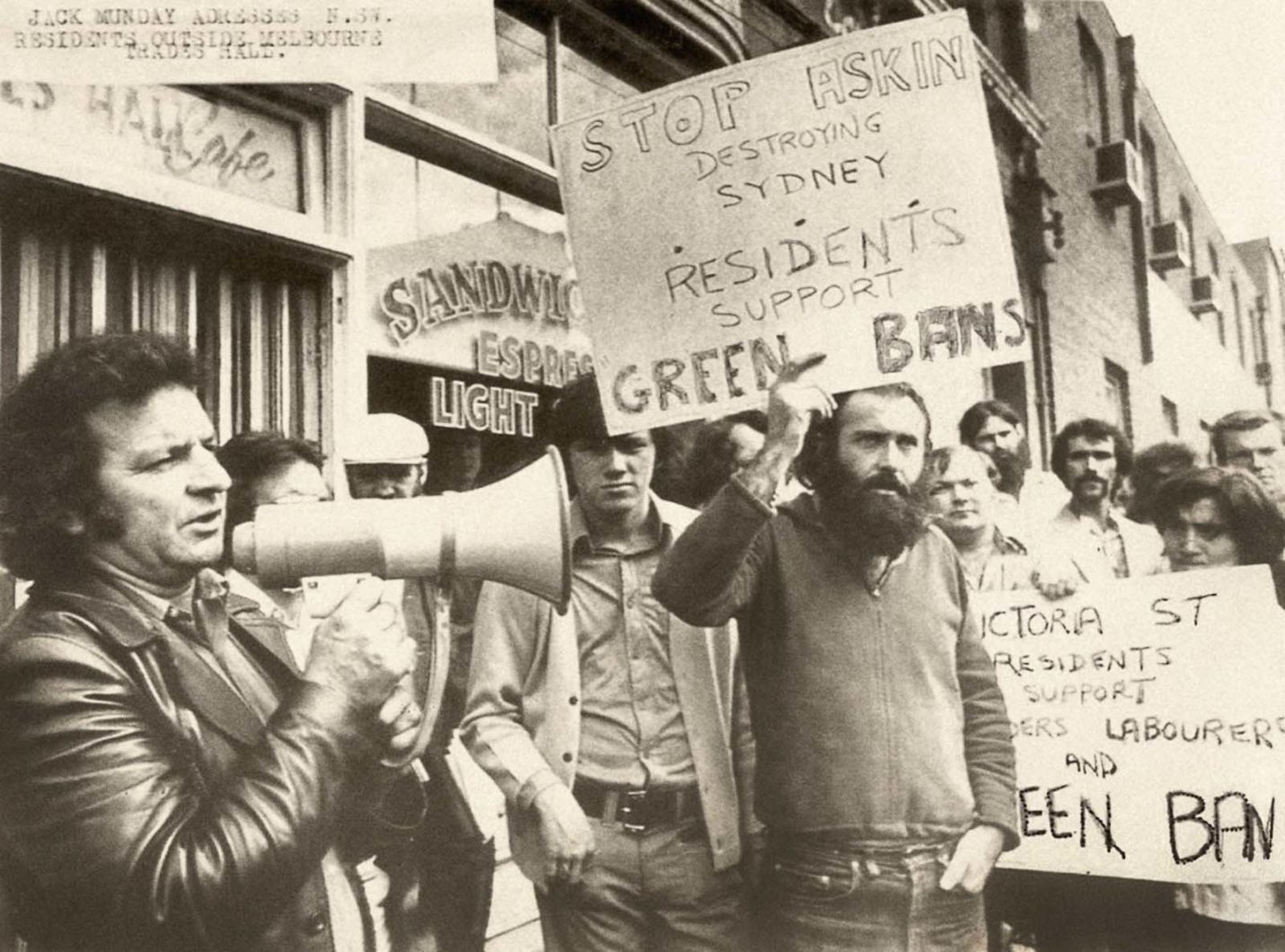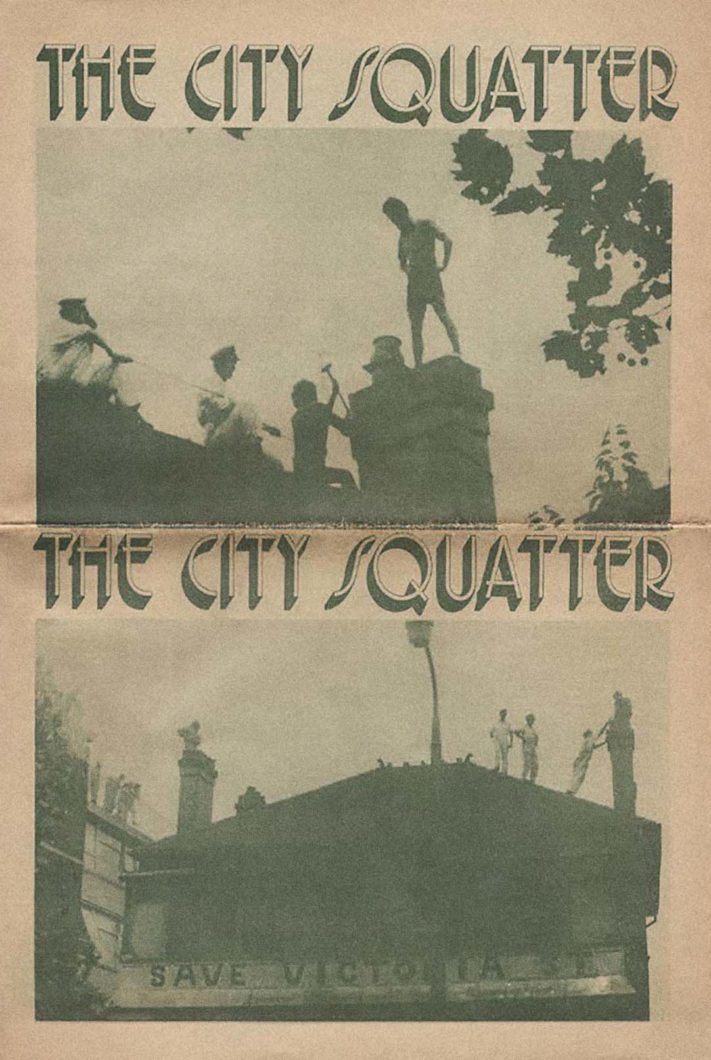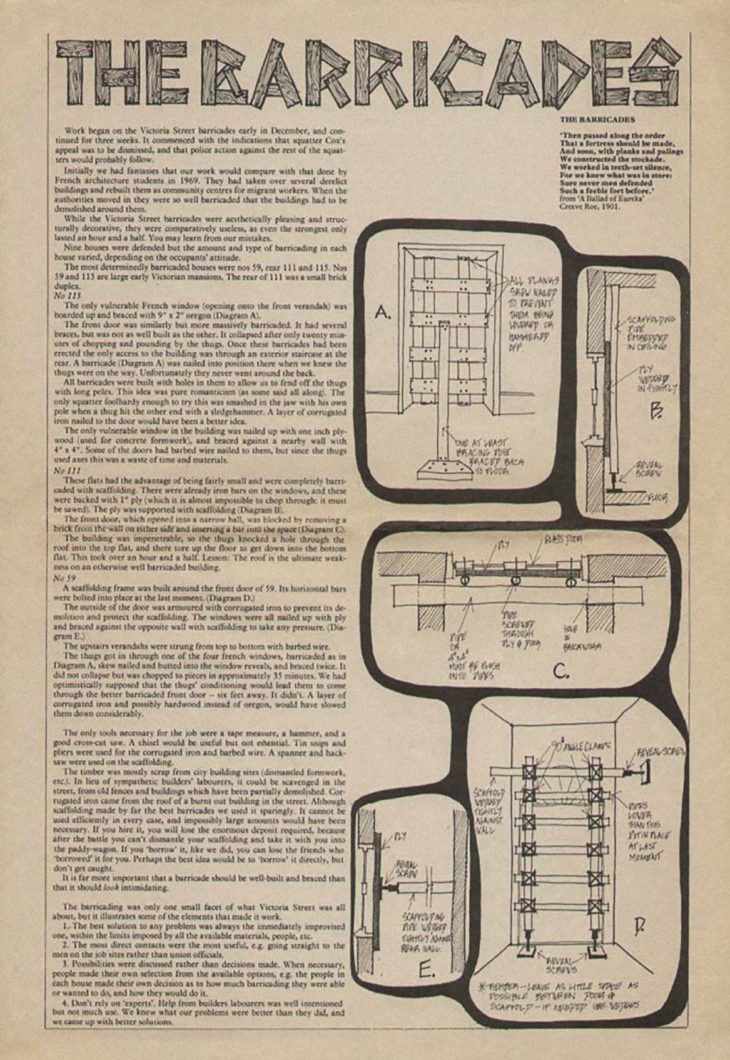The Green Bans
Protecting green spaces and heritage buildings from development in Sydney.



Initiator(s)
NSW Builders Labourers Federation and Victoria Street Resident Action Group
Description
Green bans were first conducted in Australia in the 1970s by a group of women who asked the collaboration of New South Wales Builders Labourers Federation (BLF). The first green ban was put in place to protect Kelly's Bush, the last remaining undeveloped bushland in the Sydney suburb of Hunters Hill. The BLF stopped conducting green bans in 1974 after the federal leadership under Norm Gallagher dismissed the leaders of the New South Wales branch. Gallagher was later jailed for taking bribes from developers. One of the last bans to be removed was to prevent the development of Victoria Street in the suburb of Potts Point. This ban involved hundreds of residents, trade union members, and other activists and was successful for a number of years, despite facing a well-connected developer who employed thugs to harass residents. The artist Ian Millis and Jack Mundey were part of the movement, among others.
Goals
To keep urban low cost housing and to protect the environment and heritage.
Beneficial outcomes
They created a planning system revolution changing institutions and introduced new laws. They set standards around the world. BigFagPress organised The Green Bans Art Walks in 2001. Green Bans saved many vital urban spaces and over 100 buildings were considered by the National Trust to be worthy of preservation.
Location
Australia
Users
Activists, citizens, inhabitants
Maintained by
Big Fag Press, The Cross Art Projects, The Firstdraft Depot, City of Sydney (a cultural grant), Awesome Foundation
Duration
1971 - 1974
Category
Scientific
Pedagogical
Politics
Urban Development
Economy
Environment
Social






